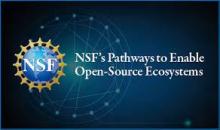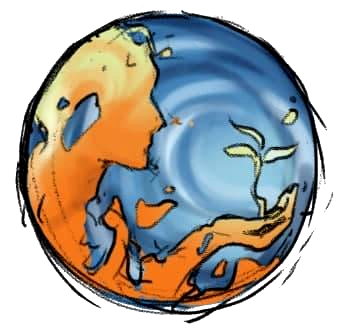Pathways to Enable Open-Source Ecosystems (POSE)

Pathways to Enable Open-Source Ecosystems (POSE)
NSF is introducing a new program called “Pathways to Enable Open-Source Ecosystems” (POSE). The purpose of the program is to harness the power of open-source development for the creation of new technology solutions to problems of national and societal importance. Many NSF-funded research projects result in publicly accessible, modifiable, and distributable open-sourced software, hardware or data platforms that catalyze further innovation. In some cases, an open-source product is widely adopted and forms the basis for a self-sustaining open-source ecosystem (OSE) comprises a distributed community of developers and a broad base of users across academia, industry and government. The goal of the POSE program is to fund new OSE managing organizations, each responsible for the creation and maintenance of infrastructure needed for efficient and secure operation of an OSE based around a specific open-source product or class of products. The early and intentional formation of such managing organizations is expected to ensure more secure open-source products, increased coordination of developer contributions, and a more focused route to impactful technologies.
The POSE program aims to support managing organizations that will facilitate the creation and growth of sustainable high-impact OSEs around already-developed open-source research products. In particular, POSE constitutes a new pathway to translate research results, akin to the Lab-to-Market Platform that NSF has pioneered over many decades. Whereas programs like the NSF Innovation Corps (I-Corps™), Partnerships for Innovation, and Small Business Innovation Research and Small Business Technology Transfer (SBIR and STTR) represent an integrated set of programs to provide researchers with the capacity to transform their fundamental research into deep technology ventures, POSE is specifically focused on another translational lineage – supporting translation from research results to OSEs.
Importantly, the POSE program is not intended to fund the development of open-source research products, including tools and artifacts. The POSE program is also not intended to fund existing well-resourced open-source communities and ecosystems. Instead, the program aims to fund new managing organizations that catalyze community-driven development and growth of the subject OSEs. The expected outcomes of the POSE program are (1) to grow the community of researchers who develop and contribute to OSE efforts, and (2) to enable pathways for the development of collaborative OSEs that could lead to new technology products or services that have broad societal impacts. OSEs can stem from any areas of research supported by NSF.
This solicitation seeks two types of proposals, allowing teams to (1) propose specific activities to scope the development of an OSE (Phase I), and (2) develop a sustainable OSE based on a mature open-source product that shows promise both in the ability to meet an emergent societal or national need and to build a community to help develop it (Phase II).
Deadline 21 October 2022
